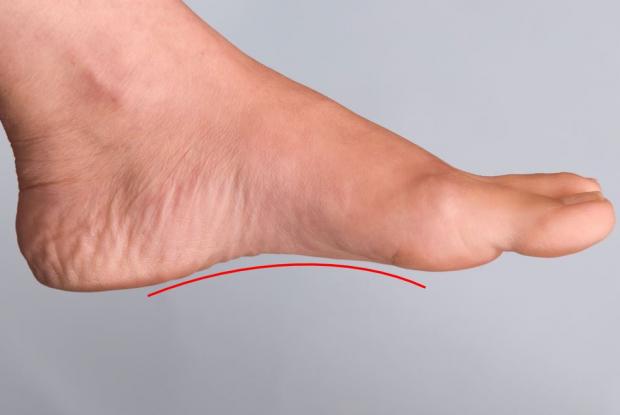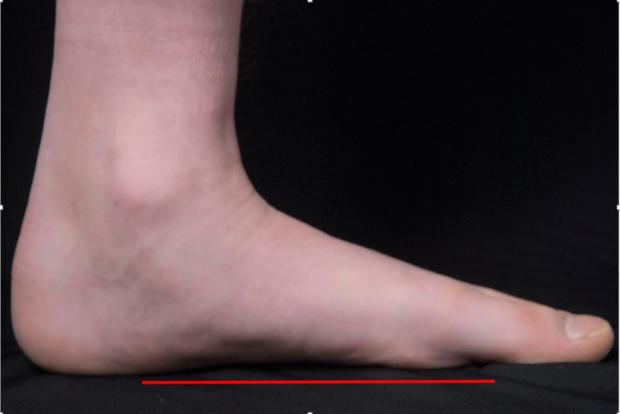Flat feet
Having flat feet, or 'fallen arches', means that your feet have low or no arches and press almost completely flat against the ground.
About flat feet
The arch, or instep, is the middle part of the foot. It is usually raised off the ground when you stand, while the rest of the foot remains flat on the ground.


In young children, this arch isn't always visible because of the baby fat and soft tissue in their feet. It usually develops and appears as they get older.
But some people never really develop this arch. Sometimes this is because they inherited flat feet from their parents.
Problems associated with flat feet
Flat feet are usually nothing to worry about. Many people with flat feet don't have any associated problems, so treatment isn't necessary.
But flat feet can sometimes be associated with:
- pain in the feet, ankles, lower legs, knees, hips or lower back
- the feet rolling inwards too much (overpronation) – this can cause shoes to wear out quickly and lead to injuries
- an underlying problem with the bones, muscles or connective tissues in and around the feet
Treatment may be recommended if you have any of these problems.
When to seek medical advice
Consider seeing your GP if you have flat feet and your:
- feet are painful, even when wearing supportive, well-fitting shoes
- shoes wear out very quickly
- feet appear to be getting flatter
- feet are weak, numb or stiff
Your GP will examine your foot and may be able to advise you about treatments that can help.
If necessary, they may be able to refer you to a podiatrist (a specialist in foot problems) or orthopaedic surgeon on the health service to discuss possible treatments.
You can also contact a podiatrist or orthopaedic surgeon directly if you're considering private treatment.
Causes of flat feet
Many people simply inherit flat feet from their parents.
Occasionally, flat feet can be the result of:
- the feet bones not forming properly in the womb
- loose connective tissue throughout the body, such as in Ehlers-Danlos syndrome or joint hypermobility syndrome
- a condition affecting the muscles and nerves, such as cerebral palsy, spina bifida or muscular dystrophy
- the connective tissue in the foot becoming stretched and inflamed – possibly as a result of overuse, unsupportive footwear, an injury, increasing age, obesity or rheumatoid arthritis
Treatments for flat feet
Flat feet only need to be treated if you have an associated problem, such as pain, overpronation or an underlying health condition.
Non-surgical treatments are often recommended first. Surgery may be needed in some cases.
Non-surgical treatments
Your GP or podiatrist may recommend:
- wearing supportive shoes that fit well
- wearing specially made insoles (orthotics) inside your shoes to support your feet and stop them rolling inwards
- taking painkillers if you have any discomfort
- losing weight if you're overweight
- stretching the muscles and connective tissues in your lower legs to help stop your foot rolling over – you may be referred to a physiotherapist, who can recommend some exercises to try
These treatments won't change the shape of the feet. But they may help relieve some of the problems associated with flat feet.
If these measures don't help, you may be referred to an orthopaedic surgeon to discuss whether surgery is an option.
Surgery
Surgery is normally only considered if the treatments above haven't helped. It may also be considered if you have an underlying problem that can be corrected with an operation, such as abnormally developed bones in the feet.
The surgical procedure recommended for you will depend on the cause of your flat feet.
Your surgeon will talk to you about the operation you may need and what this involves.
More useful links
The information on this page has been adapted from original content from the NHS website.
For further information see terms and conditions.